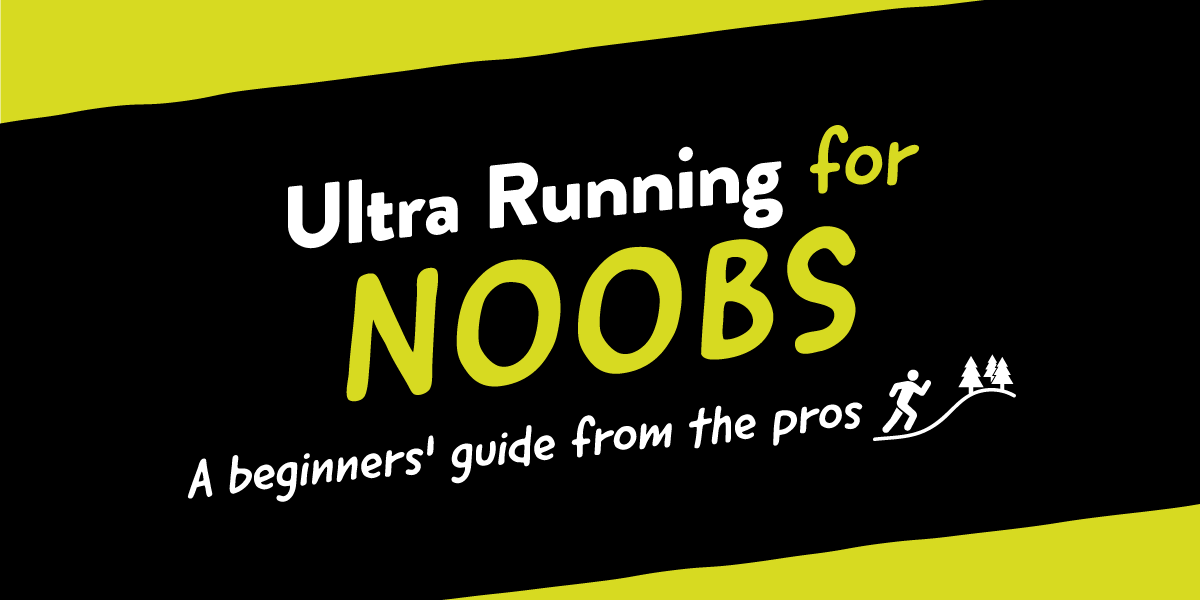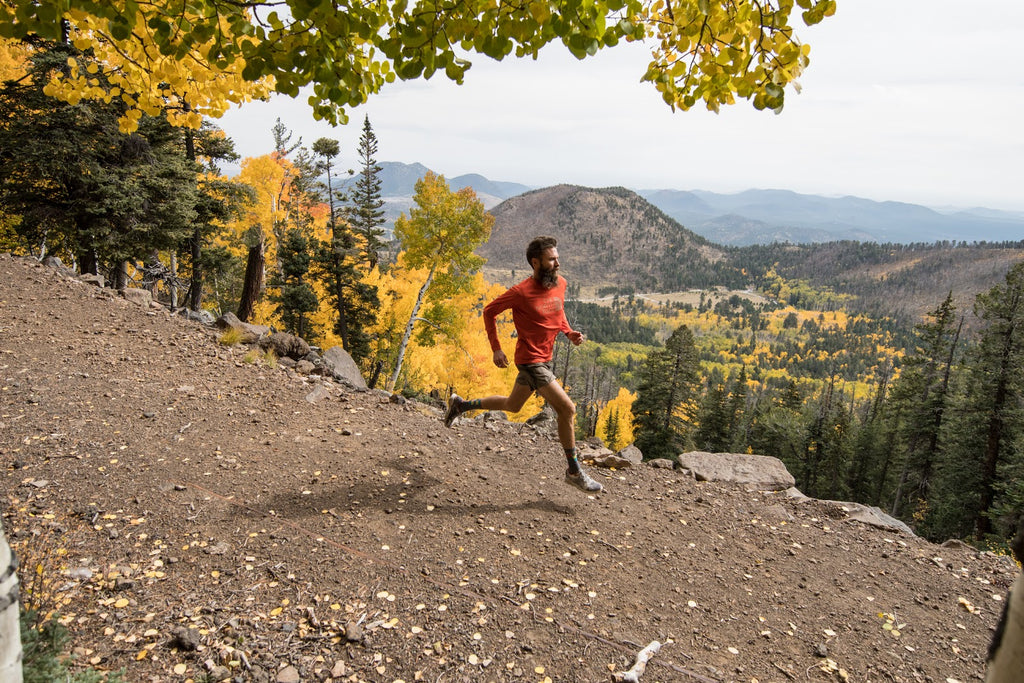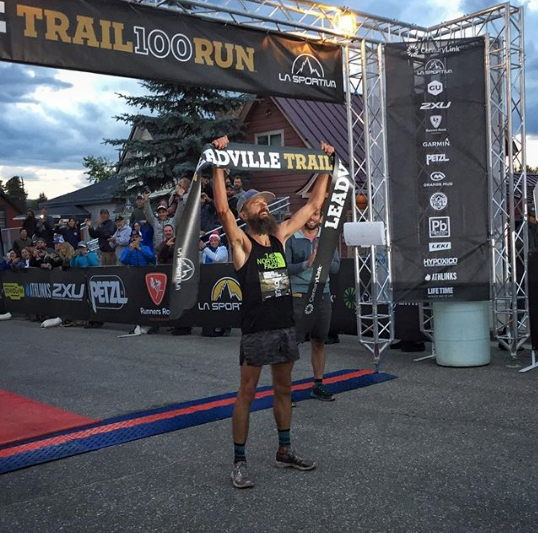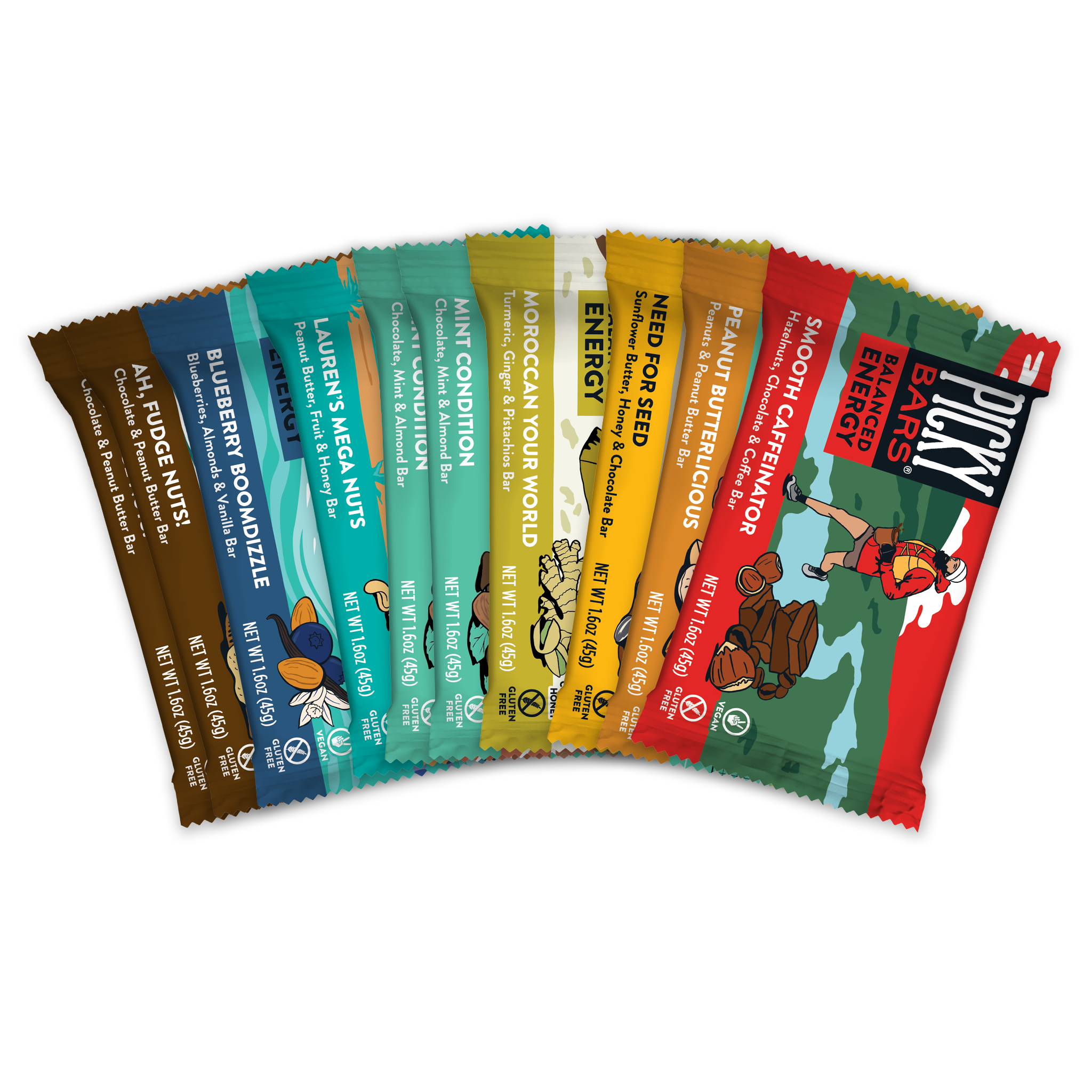

· By Sarah Conklin
A Beginners' Guide to Ultras (with Rob Krar)
When it comes to runners, "maybe one more mile..." is an often slipped slope. Your 10 minute treadmill warm up turns into a jog around the block one day, and before you know it you're in a running store getting fitted for a pair of shoes from a brand you've never heard of and asking about chafe cream, gearing up for your first race. The 5k turns into a half marathon and then a full and before you know it your "I'm NEVER doing that again!" turns into, "you know, 50k isn't really THAT much further than 26.2 miles..."
For Rob Krar, his progression into the marathon+ distance came as part localized peer pressure and part stubborn pride. (Ahh, what a relatable and familiar concoction...) He's now one of the top endurance athletes in the game, with his name littering the record books for accomplishments from Grand Canyon crossings to 100 mile victories to that one time he competed in both the run and the mountain bike race at Leadville 100. (He finished 14th in the bike and then WON the run a week later. Baller.)
If you've been considering upping your run game to the ultra level, heed some advice and tips from the ultrarunning legend below.

Rob Krar running in his hometown Flagstaff, AZ (credit James Q Martin)
I don’t know if I’m proud or embarrassed that my first ultra distance race was on a whim – a whim that literally changed the course of my life. Living in the running mecca of Flagstaff, Arizona, when someone discovers you are a runner their immediate response is more often than not “have you run an ultra?”. Tired of responding in the negative, the 2012 Bootlegger 50k was meant to be my “one and done” ultra, allowing me to proudly respond to inquiring minds that yes, I had indeed completed an ultra.
The race went about as expected – I felt great until about 40k when I then experienced something I’d never felt in my athletic career before. My legs ached with every step as I hit the wall, energy depleted and my running form quickly disintegrating. I’d felt this before, I was familiar with this misery, but this time it was different. Instead of wishing it would end and questioning my decision to race, I was drawn deeper into it, fascinated with the interaction of my mind, body and spirit, and thankful I was in the midst of an experience I’d never had before. I was hooked.
Maybe your first ultra won’t be as life changing as it was for me (but you never know), but I can almost guarantee you will explore depths you hadn’t before. Each time you step up in distance, from 50k to 100 miles and everything in between, you will be accomplishing something you never have before. How cool is that!
TIPS FOR YOUR FIRST ULTRA MARATHON
from Rob Krar, multi-time ultramarathon champ

Rob winning 2018's Leadville Trail 100 (credit Erin Strout)
Preparing for an ultra can be intimidating. However with a positive mindset and smart training it can be a manageable and exciting goal.
1) Be patient. Easier said than done no doubt, but undoubtedly the single most important piece of advice I wish I could have told myself when I started. Patience in training, patience in racing, patience in rest and recovery, and patience stepping up in race distance.
2) Immerse yourself. The ultra running community is incredibly welcoming and supportive. One of the best ways to learn and experience this is by crewing and/or pacing a runner in a race. Join a local ultra running club, soak up the multitude of podcasts, books, and online content. Ask questions no matter how odd they may sound. Of all the running disciplines I’ve been a part of, I’ve never felt so comfortable in my own skin and chatting and sharing adventures with fellow ultra runners.
3) Consistency trumps all in training. When the day goes sideways and the long run you planned turns impossible, a short lap around the park is a whole lot closer to a long run than no miles at all. Consider your game plan as a "best case scenario" and be willing and able to compromise and adjust when needed. You don't have to LOVE running all of the time – I sure don't. I love it some of the time, like it most of the time, and struggle to get out the door a decent amount of the time as well. Regardless of my mindset as I begin a run, I know I'll be a better person and more productive the rest of the day for it, and I use this as a motivator in fitting runs into my busy schedule.
4) Plan for the best, prepare for the worst. Ultra races are most commonly on trails and often over remote and challenging terrain. Practice in training what you might encounter in a race. Fueling is one of the most important, but also running with extra layers and gear, running at night with a headlamp, and training in adverse conditions. If you have the time and means, attending a Wilderness First Responder course will give you confidence you can take care of yourself, and others, if something goes wrong on the trails.
5) Appreciate the process. The race is only the tip of the iceberg. The 99% below the water that few see or appreciate should carry equal value and significance. The early morning runs, juggling training with work and life, and all the other obstacles life throws your way – the lessons, discipline, and focus you gain from the process is an invaluable perk of training for an ultra. Racing is great, especially when it goes well, but these days it is everything it took to stand on the starting line that is most meaningful in my own ultra running.
Quick Tips
- Fuel early and fuel often.
- Composure/patience early in a race, confidence in the middle, compete at the end.
- Standing on the starting line, it's better to be a little undertrained and healthy rather than overtrained and injured.
- Rest well heading into a race and give ample time after a race to recovery.
Looking for more Rob inspiration?
We've got a bar built to fuel long, long, long runs... with his picture on it!
[ SHOP SMOOTH CAFFEINATOR ]






